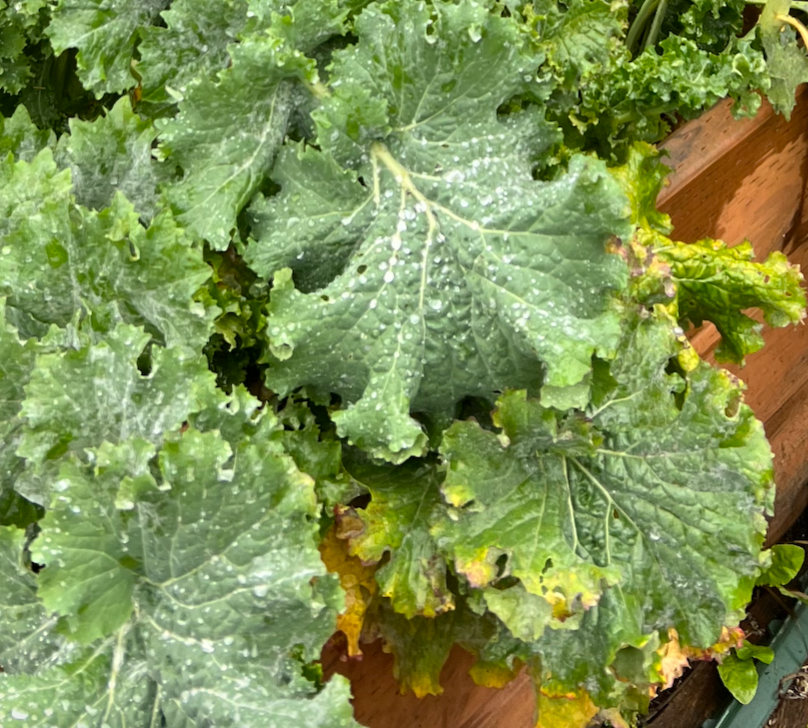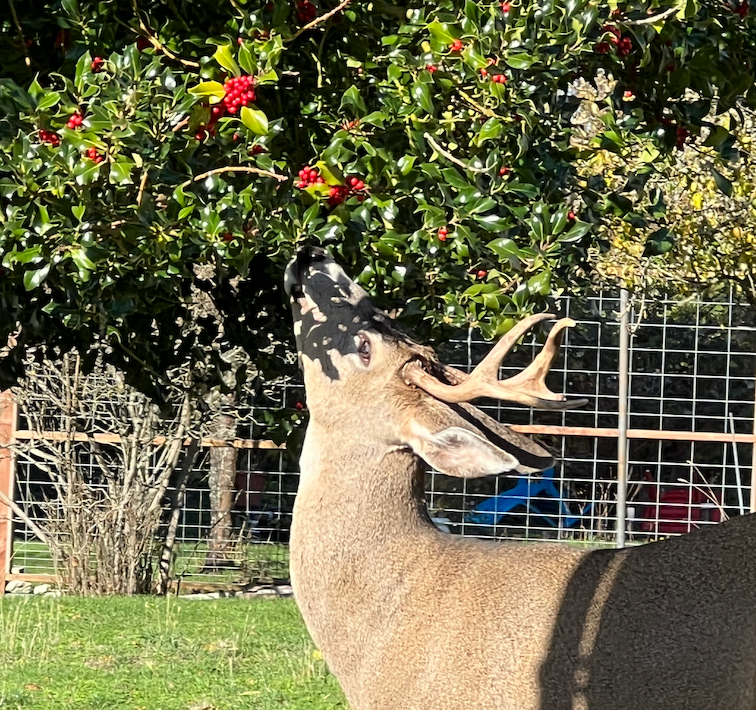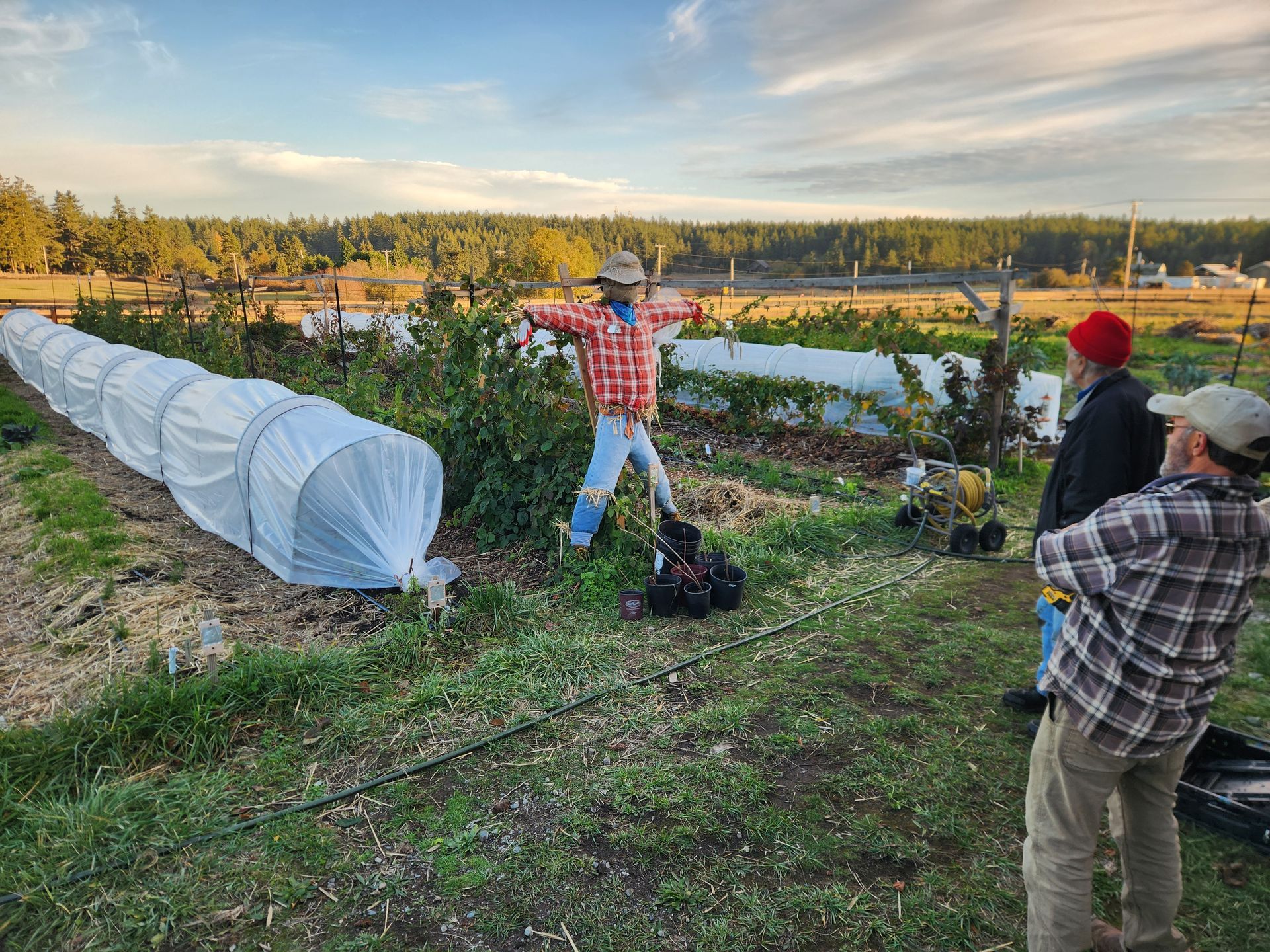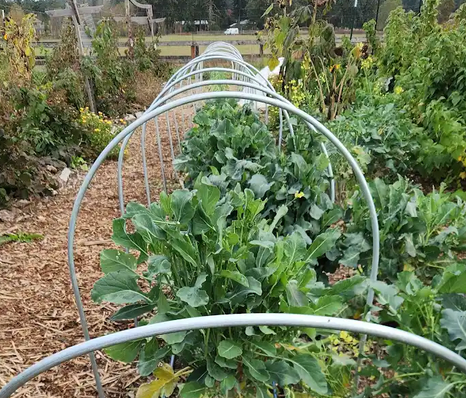November 2024 Newsletter

Kale on!

NEW update 11-3-24
2024 Year-to-Date Harvest, Volunteer Hours, and Starts
19809.34 - Pounds of fresh veggies from the Growers
8041 - Pounds of fruit from the Gleaners
6152.25 - Volunteer hours
1128 - Starter plants (grow your own)
For a complete breakdown of the harvest go here.
Upcoming Event
Food for Thought - Regenerative Communities - Care for the Earth, Care for the People, Care for the Future — Tues. Nov 12, 2024 at Quimper Grange (click here for more info).
This presentation helps us to understand permaculture ethics and how they can guide us to build healthier communities and ecosystems. Let's get back to our roots by reconnecting and tending our relationships with ourselves, each other and the planet.
Presented by Bear (They/Them) Queer Disabled Regenerative Business Owner, dedicated to decolonizing and healing ecosystems we call home. Bear's Magic involves art, community healing, tending to the dead and the living. Currently attending a 2 year PINA Program called Earth Activist Training to receive their Advanced Permaculture Design certificate and Regenerative Land Management Diploma.
They own Earth Benders, a mindful land stewardship business for regenerative landscaping and agriculture management. Need help designing or maintaining land projects? Email Bear at bearthefarmer@gmail.com
NEW Postings on FoodBankGrowers.org
Food for Thought - Regenerative Communities
Inside Brian’s Garden - October 3, October 10, October 24, October 31,
November in the Garden
November is the month our “Winter storms” begin. Yes, it is still Fall but we get most of our rainfall, averaging around 2.9”, in November. We have also gotten several big wind storms and sometimes a little snow. This year NOAA is predicting we will get average temperatures, highs of 49° and lows of 42° F. Most of the forecasts I have read are calling for above average rainfall. So we need to batten down our row covers and make sure our gardens are well drained so we don’t have too much standing water.
There is still time to get stuff done in our gardens even now. Beyond the above mentioned battening down and draining. We can still plant, cover crops, mulch and harvest. Here are some things we can still do.
Planting
- Perennials - Now is the time to plant bare root berry bushes and trees. This gives them time to settle in before spring. Add a little mulch to keep their roots warm.
- Cover crops such as fava, winter wheat, rye, field peas can still go into any space you don’t have covered by other crops. Remember, any soil left unplanted or covered may wash away in a heavy rain, which November is famous for.
- You can still plant radishes and you can transplant spinach out under cover.
- Garlic - If you have not done so yet there is still time to get your garlic in and cover it with a couple inches of mulch and/or compost.
Garden work
- Drain and/or pull irrigation. I like to pull my soaker hose and store them out of the weather during the winter months. Most drip irrigation needs to be at least drained to reduce freeze damage.
- Clean and coat tools. If you have time and energy, cleaning and coating your tools with a bit of oil or WD 40 helps keep them in good condition longer. It will also make Spring much easier.
- Mulch - again I say Mulch. This is really key to keeping our overwintering plants alive and healthy.
Harvesting
- Winter squash should mostly be in by now but there may be a few hanging on if we haven’t had a frost yet. The outer shell should be hard enough that you can’t pierce it with a fingernail. Remember to cure them warm and store them cool.
- Brussel sprouts, now is when these really start to shine. After the first frost sweetens them up. Sunchokes also need a bit of frost to sweeten them up. I wait until the tops die back to harvest these prolific gems.
- For those who are winter gardening, the list can be very long with all the wonderful winter green and brassica still producing. With a greenhouse, hoop house or even a good cold frame the growing season can be extended quite a while.
- Root crops can still be harvested as long as the ground is unfrozen. (Hint: mulch, Mulch, MULCH!)
I am noticing a theme in most of my writing these days. Mulch seems to creep into every topic, but it is so important. Whether we are sheet mulching to prepare new beds or pathways. Or mulching to reduce weeds and maintain moisture in Spring and Summer. Or mulching to keep plants warmer and reduce risk of frost damage. It all helps build up the soil and increase organic matter, which in turn creates habitat for soil organisms and fungus. All a part of growing healthy soil. Whether you mulch with straw or leaves or wood chops or compost it all has long term effects on our soil’s health and the health of our produce.
So at the risk of being repetitive - MULCH!
Happy Gardening
Dianna Wiklund 🌻
FBG Garden Coordinator
Volunteers Always Needed to help us Grow or Glean. Write us what interests you. We have desk jobs, too!



